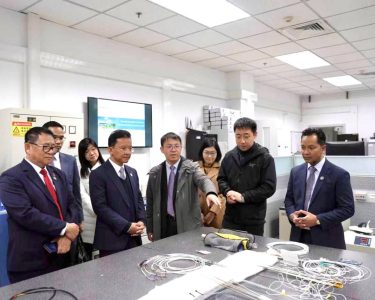Cambodia Investment Review
A coalition of 27 Cambodian civil society groups and unions is calling for the country’s 2026 minimum wage for garment and footwear workers to be raised from $208 to $232 per month, citing mounting inflation, rising debt, and the economic strain of recent border clashes. Formal wage negotiations will resume on September 3.
The groups, led by rights organization LICADHO, argued in a joint statement that workers are struggling to meet basic living standards. They pointed to the Asia Floor Wage Alliance’s 2024 Consumption Survey, which found that Cambodian garment workers spend roughly $408 per month on food and essentials—nearly double their average income of $250.
Rising Debt Burdens and Living Costs
Independent data support those concerns. The Anker Research Institute estimates that urban workers require at least $232 per month to survive, while a household needs about $417 to maintain a basic living standard. Meanwhile, CNV International’s 2024 Fair Work Monitor reported that 73% of Cambodian garment workers are in debt, often cutting back on food, healthcare, and education.
“It is unacceptable that the backbone of Cambodia’s economy — garment and footwear workers — continue to live in poverty while the industry attracts global investment and delivers profits for brands and employers,” the joint statement read.

Unions described the proposed $232 monthly wage as a modest but essential adjustment to keep pace with the cost of living. They urged the National Minimum Wage Council, the Ministry of Labour and Vocational Training, and employer groups to endorse the increase.
Balancing Worker Needs and Competitiveness
Talks at the National Minimum Wage Council began last month and are scheduled for September 3, 10, and 15. Cambodia’s minimum wage has gradually risen from $40 in 1997 to $208 in 2025, with Prime Minister Hun Manet adding an additional $2 increase in both 2024 and 2025.
Even so, union representatives argue the current wage no longer covers basic needs, especially as overtime hours shrink and borrowing costs rise. Employers counter that total monthly earnings—including overtime—already range between $225 and $300.
The labor market may also face new pressures as Cambodians return from Thailand following recent border unrest, adding to domestic competition for jobs.
Still, Cambodia remains relatively competitive in the region, with some of the lowest U.S. tariff rates in ASEAN—a factor observers say could help the country maintain its attractiveness to international investors even if wages rise further.





